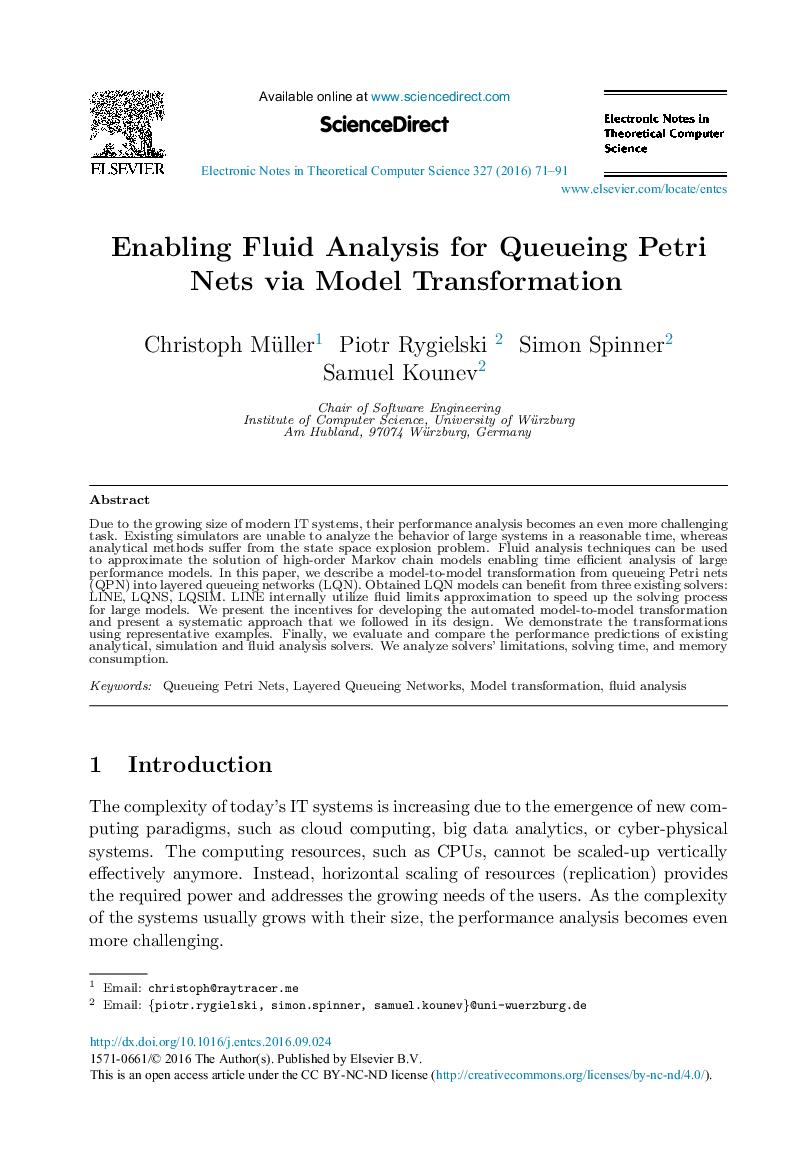| Article ID | Journal | Published Year | Pages | File Type |
|---|---|---|---|---|
| 4950095 | Electronic Notes in Theoretical Computer Science | 2016 | 21 Pages |
Due to the growing size of modern IT systems, their performance analysis becomes an even more challenging task. Existing simulators are unable to analyze the behavior of large systems in a reasonable time, whereas analytical methods suffer from the state space explosion problem. Fluid analysis techniques can be used to approximate the solution of high-order Markov chain models enabling time efficient analysis of large performance models. In this paper, we describe a model-to-model transformation from queueing Petri nets (QPN) into layered queueing networks (LQN). Obtained LQN models can benefit from three existing solvers: LINE, LQNS, LQSIM. LINE internally utilize fluid limits approximation to speed up the solving process for large models. We present the incentives for developing the automated model-to-model transformation and present a systematic approach that we followed in its design. We demonstrate the transformations using representative examples. Finally, we evaluate and compare the performance predictions of existing analytical, simulation and fluid analysis solvers. We analyze solvers' limitations, solving time, and memory consumption.
